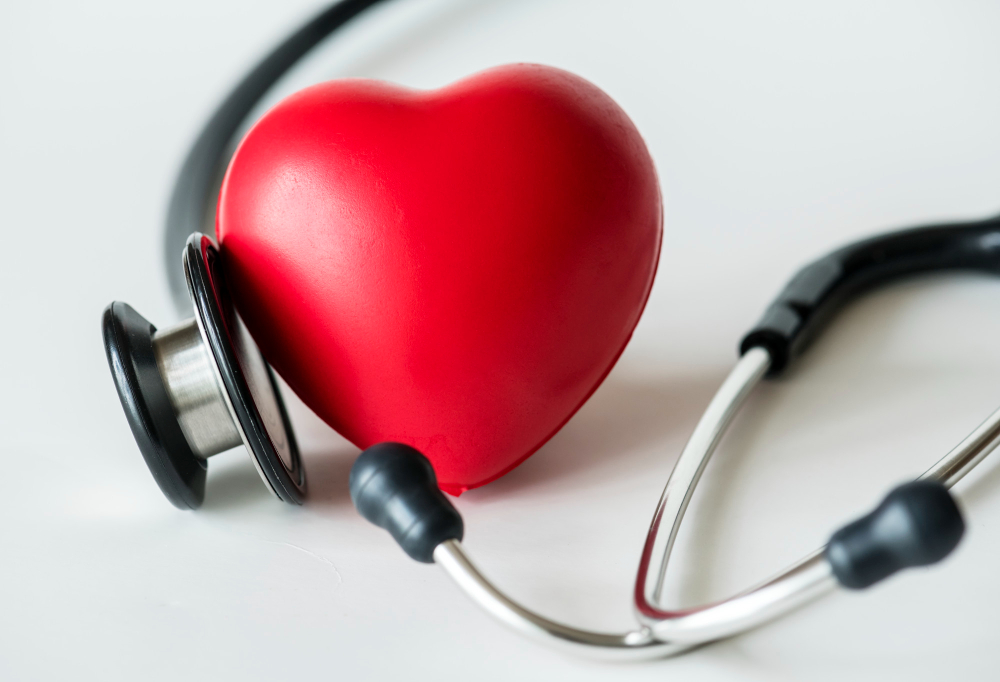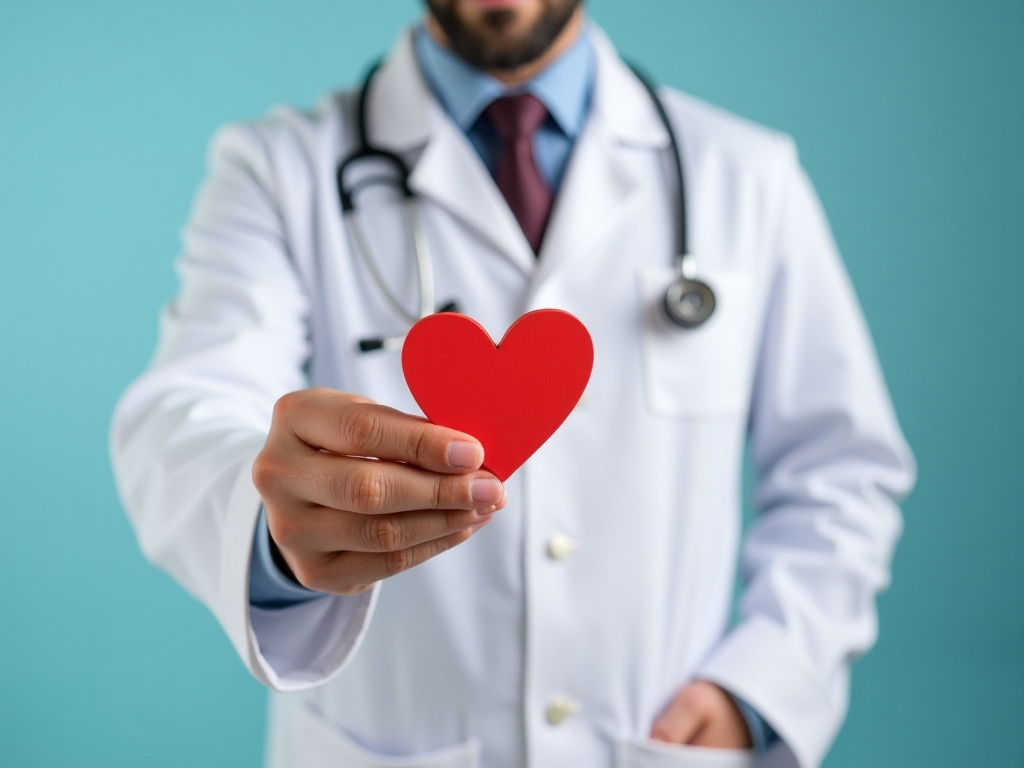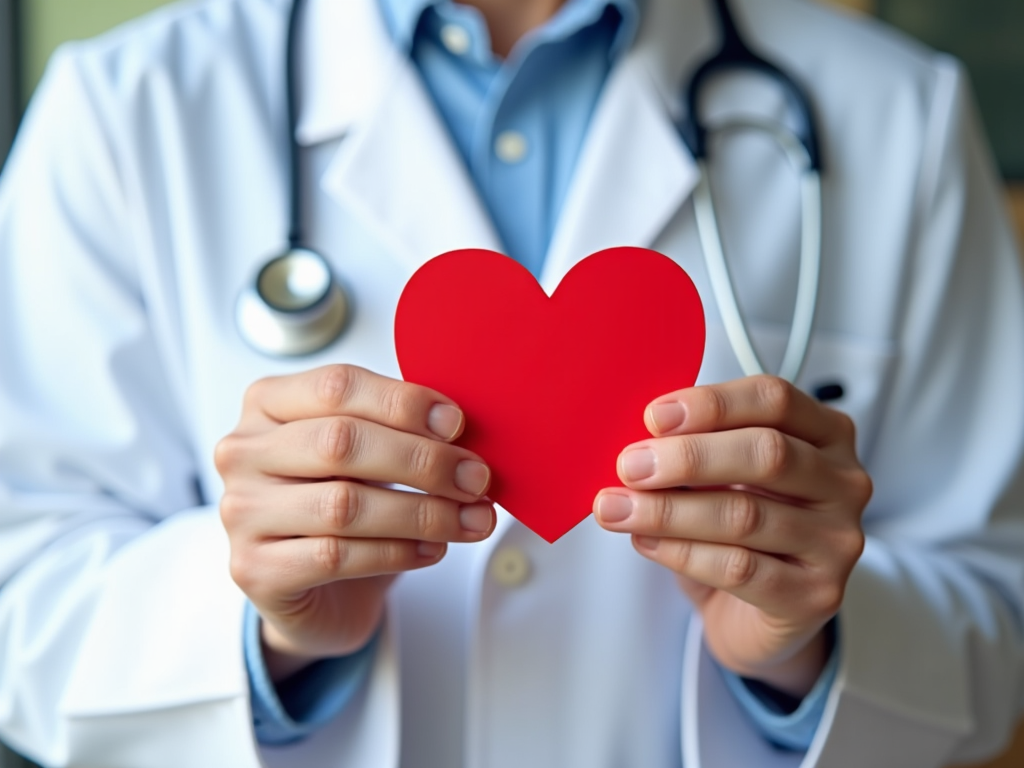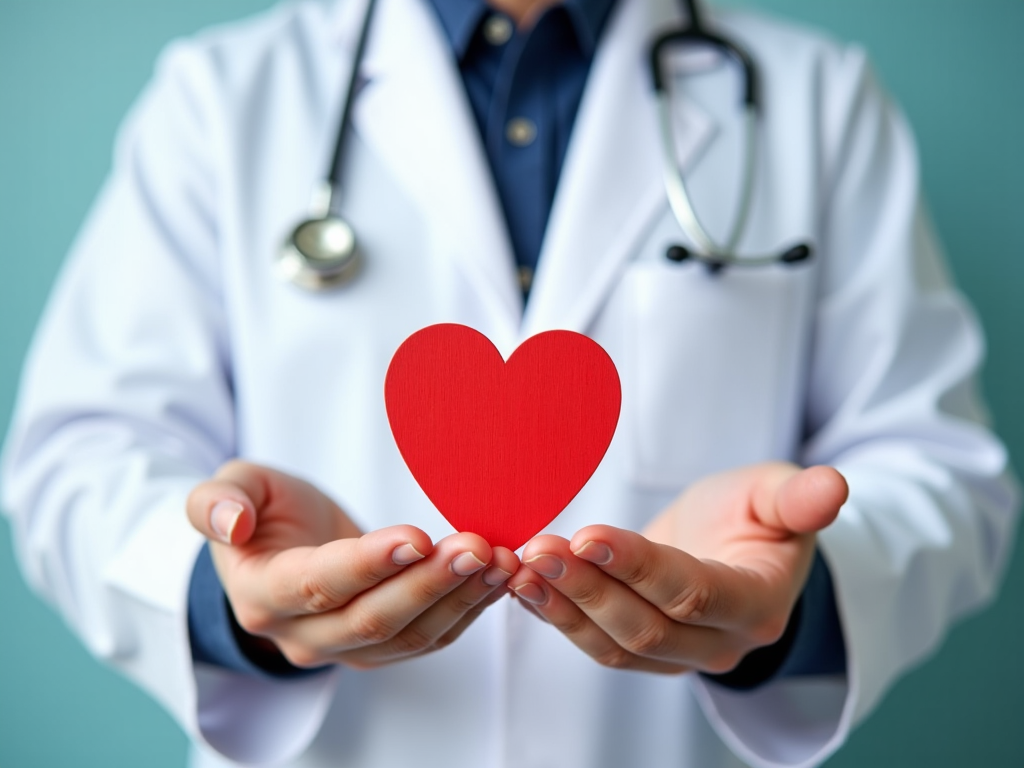Recognizing the Signs of a Heart Attack
What is a Heart Attack?
A heart attack is a serious medical condition that occurs when an area of the heart muscle doesn’t receive enough blood. The heart constantly needs oxygen to pump blood throughout the body. However, blockages in the coronary arteries can hinder this vital process. During a heart attack, the heart muscle suffers damage due to insufficient oxygen, and if not treated promptly, this can lead to permanent damage or death. Therefore, recognizing the symptoms of a heart attack and acting quickly can be life-saving.
Differences Between a Heart Attack and Heart Disease
A heart attack often results from coronary artery disease, but these two terms should not be used interchangeably. Heart disease encompasses a range of conditions that affect the heart itself and the blood vessels. These conditions include heart failure, arrhythmias, and valve diseases. A heart attack, however, is just one of these conditions and typically occurs due to a blockage in the heart’s arteries. This blockage usually results from the rupture of fatty deposits known as plaques, leading to the formation of a clot. Thus, a heart attack should be seen as a complication of heart disease.
The Most Common Symptoms of a Heart Attack
Heart attack symptoms can vary from person to person, but some signs are common and knowing them is crucial for survival.
Chest Pain: The First Sign of a Heart Attack
Chest pain is the most common and well-known symptom of a heart attack. However, this pain doesn’t always feel the same for everyone. It can start as a mild discomfort and progressively intensify. The pain typically concentrates in the center or left side of the chest and can last for several minutes or come and go.
The Nature and Duration of Chest Pain
Chest pain may be felt as pressure, squeezing, fullness, or sharp pain. This pain usually doesn’t go away with rest and can last for more than a few minutes. If you experience this kind of pain, it should not be dismissed as it could indicate a heart attack.
A Feeling of Tightness in the Chest
A feeling of tightness in the chest is one of the hallmark symptoms of a heart attack. This sensation is often described as though an elephant is sitting on your chest or as if your chest is being compressed by a vice. This tightness can make breathing difficult and cause panic.
Pain Radiating to the Shoulder and Arm
Chest pain often radiates to the shoulders, arms, upper back, and even the jaw. Pain that radiates down the left arm is a classic symptom of a heart attack. This spreading sensation indicates that the pain isn’t confined to the chest but also affects other parts of the body, highlighting the severity of the situation.
Shortness of Breath and a Heart Attack
Shortness of breath is a common and significant symptom of a heart attack that shouldn’t be ignored. Shortness of breath accompanying chest pain might indicate that the heart isn’t getting enough oxygen. This symptom can occur even during simple physical activities, making the person feel like they’re struggling to breathe.
Difficulty Breathing
During a heart attack, difficulty in breathing means the lungs aren’t receiving enough oxygen. This situation may lead to rapid, shallow breathing, which can cause panic. Shortness of breath can also occur without chest pain, so focusing solely on chest pain may lead to overlooking other critical symptoms of a heart attack.
Sudden Fatigue and Weakness
Sudden fatigue and weakness are significant symptoms of a heart attack, especially in women. This fatigue is often persistent, doesn’t improve with rest, and can appear without any apparent cause. A person might feel extremely tired even while performing routine daily tasks.
Signs of Sudden Fatigue Before a Heart Attack
Sudden fatigue just before a heart attack can be a warning sign from the body. This fatigue might be so severe that it makes getting out of bed difficult and can leave a person feeling completely drained.
Pain in the Back and Jaw
Pain in the back and jaw are lesser-known but important symptoms of a heart attack. Women, in particular, may experience back or jaw pain during a heart attack. This pain is often mistaken for muscle aches, so it’s essential to be cautious.
Heart Attack Pain Radiating to the Back
The pain experienced during a heart attack can sometimes spread to the upper back. This pain often concentrates between the shoulders, and the person might mistakenly attribute it to muscle strain or another cause. However, this type of pain could be a warning sign of a heart attack.
Jaw Pain and Heart Health
Jaw pain can be an atypical symptom of a heart attack. This pain, particularly in the lower jaw, may occur while chewing or at rest. This condition could be confused with dental or jaw issues, so the possibility of a heart attack shouldn’t be ruled out.
Nausea and Vomiting
Nausea and vomiting can be symptoms that appear during a heart attack. These symptoms might be mistaken for digestive problems, but when they occur alongside other heart attack symptoms, they should be taken seriously.
The Relationship Between Digestive Problems and a Heart Attack
During a heart attack, nausea, indigestion, or heartburn-like symptoms may occur. These signs can indicate a heart attack progressing in a more concealed manner, particularly in women.
Heart Attack Symptoms in Women
Women may experience heart attack symptoms differently from men. Chest pain isn’t always a prominent symptom in women, and the signs may appear more subtly.
The Likelihood of Different Symptoms in Women
Symptoms such as shortness of breath, nausea, back, and jaw pain are more common in women during a heart attack. These symptoms can sometimes lead to misdiagnosis, so it’s crucial for women to be more aware of the signs of a heart attack.
Cold Sweats Before a Heart Attack
Cold sweats are a quiet yet significant symptom of a heart attack. This symptom can occur suddenly and is usually accompanied by a feeling of discomfort.
The Role of Sweating in a Heart Attack
Cold sweats during a heart attack indicate that the body is under stress. This sweating is typically sudden and intense, making the person feel very unwell. When combined with other symptoms like chest pain or shortness of breath, this can be a serious warning sign.
Psychological Symptoms That Can Occur During a Heart Attack
A heart attack isn’t limited to physical symptoms; psychological symptoms can also manifest. These include sudden fear, anxiety, or panic attacks.
Anxiety and Panic Attacks
During a heart attack, a person might experience sudden anxiety or a panic attack. These feelings may be accompanied by rapid heartbeats and shortness of breath, making the situation even more frightening.
Dizziness and Fainting
Dizziness and fainting are serious symptoms that can occur during a heart attack. These symptoms indicate that the brain isn’t getting enough oxygen and require immediate medical attention.
Dangerous Signs of Dizziness
Dizziness is a symptom that’s often overlooked, but it can be very dangerous during a heart attack. If dizziness is accompanied by chest pain or shortness of breath, it should be evaluated immediately.
Fainting and Loss of Consciousness
Fainting or losing consciousness during a heart attack indicates the severity of the situation. These symptoms suggest that the heart isn’t pumping enough blood throughout the body, necessitating immediate emergency care.
Temporal Factors in Heart Attack Symptoms
Heart attack symptoms can vary depending on the time of day. Understanding how these symptoms develop can help ensure quicker and more accurate responses in crisis situations.
The Course of Symptoms Throughout the Day
Heart attack symptoms are often more prevalent in the morning. This is due to higher levels of stress hormones in the body during the morning hours. Therefore, symptoms such as chest pain or shortness of breath occurring in the morning should be taken seriously, and a doctor should be consulted immediately.
Heart Attack Symptoms at Night
Heart attack symptoms can also appear at night. Heart attacks that occur during sleep might go unnoticed, increasing the danger. If you wake up suddenly at night with chest pain or shortness of breath, it’s important not to ignore these symptoms.
Situations to Watch for Before a Heart Attack
Certain situations, particularly stress and high blood pressure, should be closely monitored before a heart attack.
The Impact of Stress on Heart Health
Stress has a significant impact on heart health. Prolonged stress can damage the blood vessels, increasing the risk of a heart attack. Therefore, stress management is crucial for maintaining heart health.
Pre-existing Heart Conditions
Pre-existing heart conditions significantly increase the risk of a heart attack. If you’ve been diagnosed with heart disease, recognizing symptoms and responding quickly becomes even more critical.
Recognizing Heart Attack Symptoms and Early Intervention
Recognizing heart attack symptoms can save lives. Early intervention is crucial for minimizing the effects of a heart attack and increasing the chances of survival.
When to Seek Immediate Medical Attention
When symptoms like chest pain, shortness of breath, or cold sweats occur, it’s essential to seek medical attention immediately. Every minute counts in determining the outcome of a heart attack, so acting quickly can be life-saving.
What to Do in an Emergency
If heart attack symptoms appear, it’s important to call for emergency medical help immediately and, if possible, chew an aspirin. It’s also crucial to remain calm and avoid sudden movements while waiting for the ambulance.
Preventive Measures to Avoid a Heart Attack
Lifestyle changes play a significant role in preventing a heart attack. Adopting a healthy lifestyle can reduce the risk of a heart attack.
Healthy Eating and Heart Health
Healthy eating is one of the cornerstones of heart health. Avoiding foods high in saturated fats, trans fats, and cholesterol is a crucial step in preventing a heart attack.
Regular Exercise and Heart Health
Regular exercise is key to maintaining heart health. Engaging in at least 150 minutes of moderate exercise per week can reduce the risk of a heart attack and improve overall health.
The Effects of Smoking and Alcohol Consumption
Smoking and excessive alcohol consumption damage the blood vessels and increase the risk of a heart attack. Quitting smoking and limiting alcohol intake are important steps to take for heart health.
The Importance of Regular Health Check-ups
Regular health check-ups are one of the most effective ways to reduce the risk of a heart attack. Early detection of risk factors such as high blood pressure and high cholesterol allows for timely intervention to prevent a heart attack.
Life After a Heart Attack
Lifestyle changes made after a heart attack can speed up the recovery process and reduce the risk of a second heart attack.
Things to Pay Attention to During the Recovery Process
The recovery process after a heart attack requires care and attention. Following the doctor’s recommendations for medication, gradually increasing physical activity, and avoiding stress are essential for a successful recovery.
Lifestyle Changes After a Heart Attack
Adopting a healthy lifestyle after a heart attack is vital to preventing a second attack. Reviewing eating habits, exercising regularly, and avoiding smoking are key changes to make.
The Importance of Social Support and Psychological Help
Receiving social support and psychological help after a heart attack is an indispensable part of the recovery process. Spending time with loved ones, joining a support group, or consulting a therapist is important for mental health. This can help you feel less alone during the recovery process and continue to live life more strongly.




